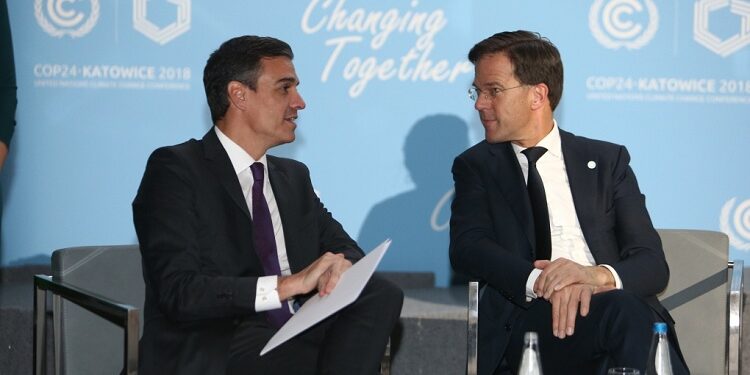Eduardo González
The Government has assured that the Netherlands does not appear on the list of countries and territories with “harmful tax regimes” or of “non-cooperative jurisdictions”, so it “does not have the status” of tax haven.
This is how the Government answered, last April 17, to a written parliamentary question from the deputies Jaime Eduardo de Olano Vela and Mario Garcés Sanagustín, of the Popular Group, on “the opinion of the Government on whether the Netherlands is a tax haven”.
In the answer, the Executive recalls that Article 16 of the Law against tax fraud, adopted on July 9, 2021 as a transposition of the European Directive against tax practices harmful to the single market (of 2016), replaces the term “tax haven” with the new international concept of “non-cooperative jurisdiction”. Consequently, warns the Executive, in the Spanish tax regulations there are no longer “tax havens”, but “non-cooperative jurisdictions”.
“Without prejudice to the foregoing, last February 11, 2023, Order HFP/115/2023 of February 9 was published in the Official State Gazette (BOE), determining the countries and territories, as well as the harmful tax regimes, that have the consideration of non-cooperative jurisdictions, among which the Netherlands is not included,” it continues. “Consequently, the Netherlands does not have the status of a non-cooperative jurisdiction,” the response concludes.
The BOE list, published by the Ministry of Finance and Public Function, includes a total of 24 “non-cooperative jurisdictions,” including Gibraltar. The 2021 Law and the 2016 European Directive update the criteria for defining a “non-cooperative jurisdiction” in line with the work developed at the international level, both within the framework of the European Union and the Organization for Economic Cooperation and Development (OECD).
Following Ferrovial’s recent decision to move its registered office from Spain to the Netherlands, which has been harshly rejected by the Government, two of the representatives of Unidas Podemos in the coalition Executive indirectly accused this country of being a “tax haven”. Specifically, the second vice-president and Minister of Labor, Yolanda Díaz, advocated for a Europe in which “tax dumping and tax havens cannot exist” and the leader of Podemos and Minister of Social Rights, Ione Belarra, called for joint measures in the EU to eradicate “tax havens” within the continent and prevent companies such as Ferrovial from avoiding the “fair” tax model defended by the Government, whose transfer is a clear example of “tax dumping”.
The debate on the status of the Netherlands as a tax haven also intensified in 2020, when, in the midst of the pandemic, Mark Rutte’s government was particularly harsh during the negotiations for the economic recovery plan, in which it repeatedly and forcefully demanded that economic aid be made conditional on reforms in the countries of the south, with express mention of Spain and Italy, the two countries most affected by the first wave of COVID-19. On that occasion, several countries criticized the Netherlands for being so belligerent when it has tax advantages that other European countries do not enjoy, and some even accused the country of being a “tax haven” within the EU.
In fact, the Netherlands is the usual resort of many multinationals that save millions of euros by channeling the profits of their subsidiaries through this country, before this capital returns to the accounts of the parent company. To this end, the Netherlands facilitates the creation of “letter-box companies”, which have their tax headquarters in the country even though their economic activity is carried out in another EU country, thus reducing costs. Through this procedure, many European companies from countries that prohibit the use of tax havens send their profits to the Netherlands because their taxes are much lower.
Despite this, and the fact that some NGOs accuse the Netherlands of being a tax haven, many governments believe that the Netherlands does not qualify as a tax haven because it is not the final destination of the profits of these companies and its function is mainly to serve as a (legal) bridge between the parent countries and the third countries where the profits finally end up, which are usually tax havens.






